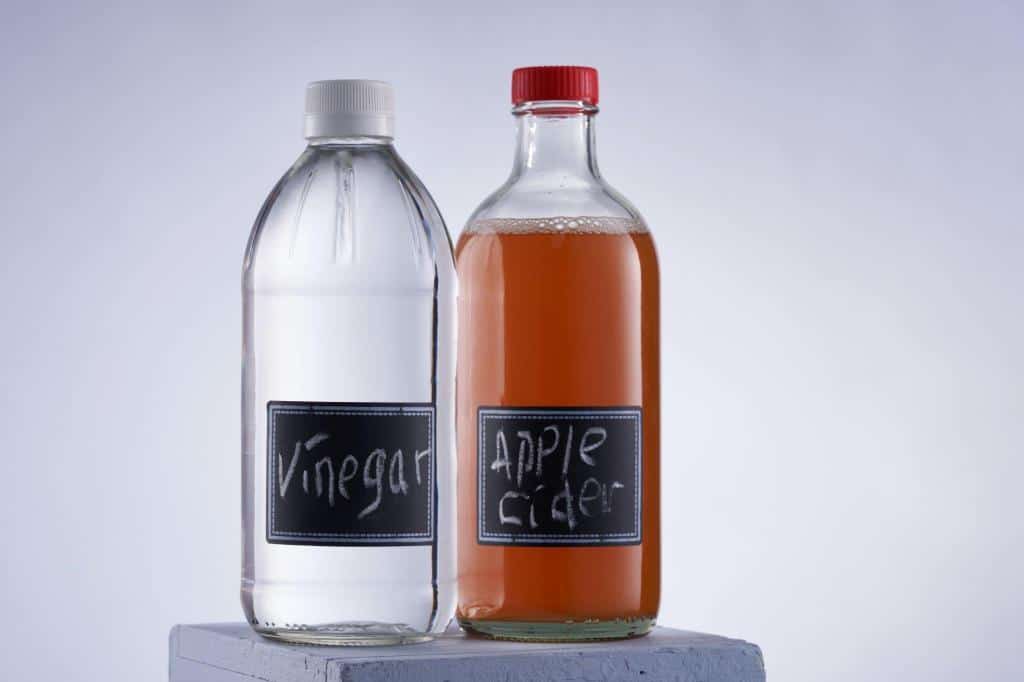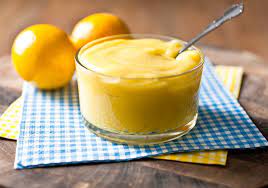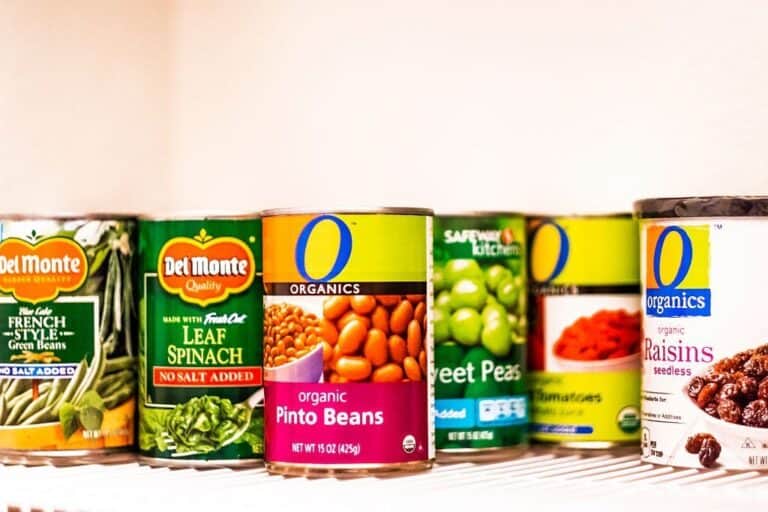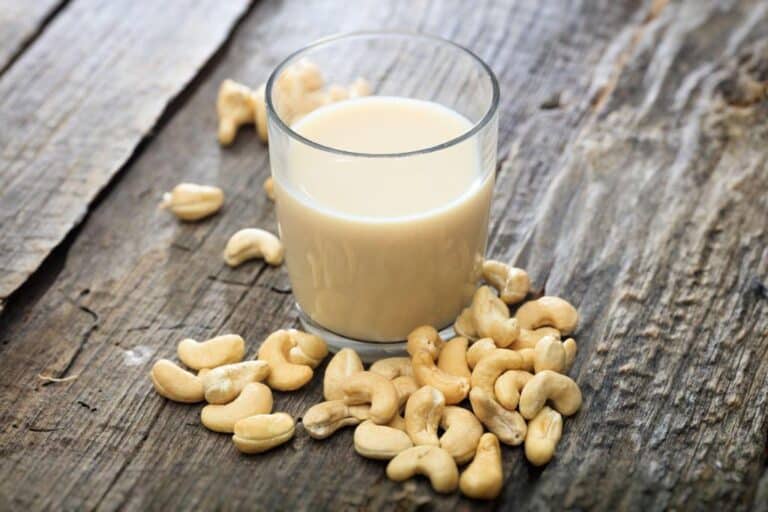Can You Eat Distilled Vinegar? Facts and Safety Concerns

Unlocking the culinary mysteries of the world is an ongoing adventure. It’s filled with exciting and sometimes unexpected discoveries. Health-conscious food enthusiasts have recently taken an interest in distilled vinegar. It’s a versatile liquid known for its tangy flavor and diverse range of uses.
But beyond garnishing salads or adding a punch to marinades, many wonder: Is distilled vinegar safe to consume? Today, we’ll delve deep into this topic to unravel the facts and explore both its potential benefits and risks.
Some individuals argue that consuming distilled vinegar can have numerous beneficial effects on health due to its potential antimicrobial properties. Others express concerns about whether excessive consumption may cause unintended consequences or trigger adverse reactions in certain people.
We will navigate these complexities carefully. You can then make informed decisions about adding this interesting ingredient to your diet.
By carefully exploring the pros and cons of consuming distilled vinegar in moderation and relying on scientific research, you’ll gain new perspectives on its safety and a deeper understanding. Join us as we venture forth on this enticing gastronomic expedition!
What is Distilled Vinegar?

Firstly, it’s important to understand exactly what distilled vinegar entails. Distilled vinegar is made through a fermentation process. Specialized bacteria convert ethanol (alcohol) into acetic acid. Unlike other forms of vinegar, which retain some nutrients from their original sources, such as apples or distilled vinegar, vinegar is highly refined. It is stripped down solely to acetic acid. With this in mind, questions naturally arise about its safety as a consumable product.
Distilled vinegar is a type of vinegar that is made through a fermentation process with ethanol (alcohol). They undergo oxidation to produce acetic acid. This type of vinegar has been refined and purified. It’s a clear liquid with a higher amount of acetic acid than other vinegars. The higher acidity level gives distilled vinegar its distinct, sharp flavor.
The origin of distilled vinegar can be traced back thousands of years. Ancient civilizations, such as the Babylonians and Egyptians, used vinegar for various purposes. They used vinegar to preserve food and as medicine.
The production methods evolved over time. Distillation techniques were developed during the Middle Ages in Europe. This refinement process allowed for greater control over the quality and purity of the vinegar produced.
Today, distilled vinegar is commonly used in cooking, baking, marinades, salad dressings, and pickling solutions. Distilled vinegar is also being used as a household cleaning agent due to its acidic properties. Its versatility has made it popular worldwide.
Can You Drink Distilled Vinegar?
Vinegar is safe to use on food and when mixed with water, juice, or another liquid, but drinking it directly is not recommended due to its high acidity. They can be harmful to the mouth and digestive system.
Vinegar has some potential health benefits, such as antioxidant properties. However, it can also pose risks. For example, it can irritate the stomach and cause tooth enamel loss. Also, consuming it regularly can contribute to various health issues.
Therefore, it’s important to use vinegar cautiously and avoid drinking it directly. If someone has ingested vinegar and is experiencing severe symptoms, it’s essential to seek medical help immediately.
Is Distilled Vinegar Safe to Consume?
When used moderately as a condiment or ingredient in cooking or salad dressings, distilled vinegar is generally considered safe for consumption by most individuals. The acetic acid present in this type of vinegar has antimicrobial properties that can help inhibit the growth of bacteria and potentially aid digestion.
However, excessive intake may irritate sensitive stomachs. It may also contribute to tooth erosion due to its acidity level. Additionally,research has shown that consuming large quantities over an extended period might negatively impact bone health due to its ability to deplete calcium levels.
Before making substantial dietary changes, talk with your healthcare provider. This is especially important if you have conditions like osteoporosis, digestive disorders, or kidney problems. They can advise on suitability for your individual circumstances.
Guidelines for Safe Consumption
a) Moderation and portion control: When it comes to consuming distilled vinegar, moderation is key. Small amounts of distilled vinegar are generally safe to consume. However, excessive intake can have negative effects on health. The acetic acid present in vinegar can irritate the digestive system and lead to stomach discomfort or even ulcers when consumed in large quantities. Therefore, it is important to use distilled vinegar sparingly as a condiment or ingredient in cooking rather than drinking it straight from the bottle.
b) Diluting distilled vinegar: If you choose to drink diluted distilled vinegar for its potential health benefits, dilution is crucial. Mixing one tablespoon of distilled vinegar with 8 ounces of water or another beverage can help reduce the acidity and make it safer to consume. This dilution not only safeguards your tooth enamel but also lessens any potential harm that undiluted vinegar’s high acidity might cause.
c) Recommendations for individuals with specific health concerns: For individuals with pre-existing health conditions such as gastritis, GERD (gastroesophageal reflux disease), or kidney problems, consuming distilled vinegar may worsen their symptoms or interfere with prescribed medications. These individuals should consult their healthcare provider before adding any new food or supplement to their diet. It’s always advisable.
By following these guidelines, like practicing moderation and diluting when necessary, individuals can safely incorporate distilled vinegar into their diet without experiencing adverse effects on their overall well-being. If needed, they should seek medical advice.
Health Benefits of Consuming Distilled Vinegar
While distilled vinegar is primarily used as a cooking ingredient and condiment, it also offers several potential health benefits. One notable advantage is its ability to help control blood sugar levels.
Research has shown that consuming diluted apple cider vinegar before a meal may improve insulin sensitivity and lower post-meal blood glucose levels. Apple cider vinegar contains acetic acid, like distilled vinegar. This can be especially beneficial for individuals with type 2 diabetes or those at risk of developing the condition.
Another area where distilled vinegar may prove useful is in promoting weight loss and appetite control. Some studies suggest that consuming small amounts of vinegar before a meal can increase feelings of fullness. It may also reduce food intake throughout the day. This effect could be attributed to acetic acid’s ability to slow down gastric emptying, leading to greater satiety after meals.
Beyond its potential impact on blood sugar regulation and weight management, research indicates that drinking diluted distilled vinegar could have positive effects on heart health. Acetic acid has been found to decrease total cholesterol levels by inhibiting cholesterol synthesis in the liver.
Lower cholesterol levels are associated with a reduced risk of cardiovascular diseases such as heart attacks and strokes.
These anticipated health benefits make consuming distilled vinegar an enticing option for individuals looking for natural remedies or dietary additions to support their overall well-being.
However, it’s essential to keep in mind that moderation is key when incorporating any new substance into your diet. This applies equally to distilled vinegar consumption. Excessive quantities may lead to adverse effects discussed later in this article.
Composition and Nutritional Content of Distilled Vinegar
Distilled vinegar is made from the fermentation of alcohol, typically derived from grains or fruits. The process involves converting alcohol into acetic acid through bacterial activity. This results in a clear liquid with a strong, acidic taste.
One of the main reasons people consume distilled vinegar is for its potential health benefits. However, it’s important to note that distilled vinegar does not provide significant amounts of fats, proteins, or carbohydrates.
Nutrient Profile of Distilled Vinegar: Calories, vitamins, and Minerals
In terms of calorie content, distilled vinegar is extremely low-calorie and can be a great option for those watching their weight or looking to add flavor without adding many calories to their meals. Typically, one tablespoon (about 15 ml) contains only about three calories.
Distilled vinegar lacks macronutrients like proteins and fats. However, it does contain some trace minerals, such as potassium. However, these levels are relatively low compared to other food sources rich in these nutrients.
Uses of Distilled Vinegar
Overview of Culinary Applications (Cooking, Pickling)
Distilled vinegar is a versatile ingredient that has been used in culinary practices for centuries. Its acidic nature and tangy flavor make it a staple in many kitchens worldwide. In cooking, distilled vinegar can be used to add a delightful kick to various dishes.
It works well as a dressing for salads or as an acidifier in marinades, helping to tenderize meat while adding flavor. Distilled vinegar can balance the sweetness in recipes. It is an excellent addition to sauces and condiments. Additionally, it has acidity.
Apart from its use in cooking, distilled vinegar has long been prized for its ability to preserve food through the process of pickling. The acetic acid present in vinegar creates an environment that inhibits bacterial growth, allowing vegetables and fruits to maintain their freshness over time.
Pickled cucumbers or sauerkraut are just a couple of examples where distilled vinegar lends its tangy taste and acts as both a preservative agent and flavor enhancer.
| Related: Do Pickles Need to Be Refrigerated After Opening? |
Non-food Uses (Cleaning, Beauty Products)
Distilled vinegar has multiple non-food uses because it cleans well. It’s not just for cooking. Thanks to its natural acidity level—typically around 5% – it acts as an effective cleaning agent without resorting to harsh chemicals found in commercial cleaners. Distilled vinegar can safely be used on surfaces such as countertops or glassware by diluting it with water before application.
In addition to household cleaning tasks, some people incorporate distilled vinegar into their beauty routine due to its potential skin benefits. The mildly acidic nature may help restore the skin’s pH balance and alleviate conditions like acne or eczema when applied topically or incorporated into homemade skincare products carefully diluted with other ingredients.
Overall, whether you’re looking for ways to enhance your culinary creations or seek safer alternatives for cleaning solutions or beauty regimens at home, having some bottles of distilled vinegar proves to be a cost-effective and versatile option with numerous uses both in the kitchen and beyond.
Alternative Uses for Distilled Vinegar: Beyond Culinary Delights
Distilled vinegar, although primarily known for its use in the kitchen, offers a multitude of alternative applications beyond culinary endeavors. This versatile liquid is not only an effective cleaning agent but can also be incorporated into your skincare routine to reap various benefits.
When it comes to household cleaning, distilled vinegar’s acidic nature makes it an excellent, non-toxic option. Vinegar can tackle tough stains on surfaces like countertops and glass by breaking down dirt and grime. To create a simple all-purpose cleaner, mix equal parts water and distilled vinegar in a spray bottle. This concoction can effectively sanitize cutting boards or even remove mineral buildup on shower heads.
In addition to using it for household chores, consider adding distilled vinegar to your beauty routine. It might benefit your skin. The natural acidity of the vinegar is said to help balance the skin’s pH levels while acting as an exfoliator that gently removes dead skin cells. Mixed with water in a 1:1 ratio, it can be used as a toner to minimize pores and improve overall complexion.
Keep in mind these alternative uses for distilled vinegar. It offers many practical applications outside of cooking. Remember it’s essential to do further research before using it extensively for non-culinary purposes.
Conclusion
In conclusion, distilled vinegar is generally safe to consume in moderation. It can be a versatile ingredient in cooking and offers potential health benefits when incorporated into a balanced diet. The acetic acid found in distilled vinegar may aid digestion, promote weight loss, and help regulate blood sugar levels. Additionally, the antimicrobial properties of vinegar make it a natural preservative for certain foods. However, it’s important to note that excessive consumption or undiluted ingestion of concentrated vinegar can have negative effects on health.
When using distilled vinegar as a food ingredient or supplement, it’s essential to consider factors such as personal tolerance, allergies or sensitivities, and any underlying medical conditions. As with any dietary component, consulting with a healthcare professional or registered dietitian is advised before making significant changes to your diet.
Many people claim distilled vinegar has health benefits. However, more research is needed to draw comprehensive conclusions. Nonetheless, incorporating moderate amounts of this pantry staple into your culinary endeavors can add tangy flavor. It might also provide some positive impacts on health.






